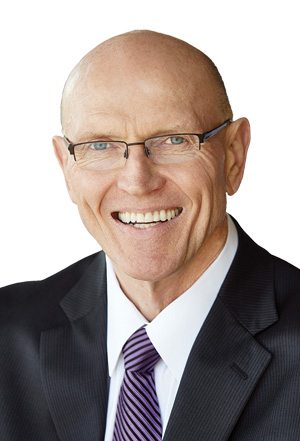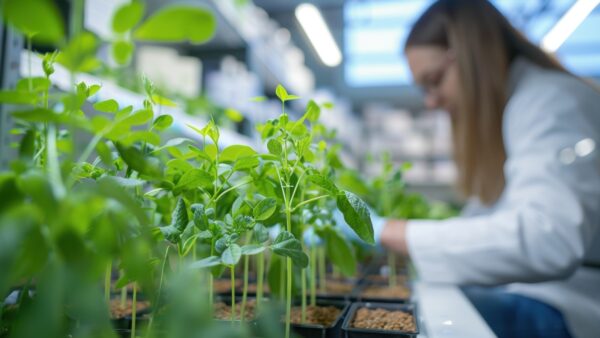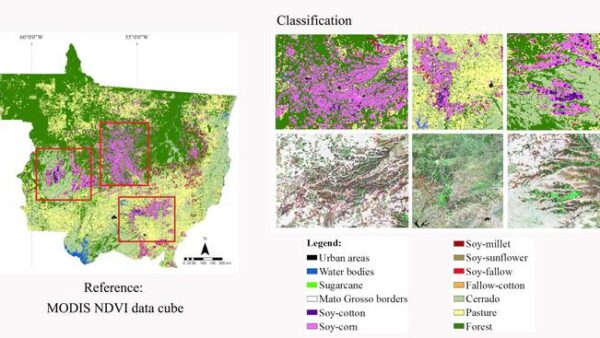To sell seed, you need to learn to communicate effectively in today’s crowded marketplace.
The world of seed sales in 2016 is far different from what it was in 1996. Scott Downey has been here through all of it, so he knows what today’s seed seller deals with. What worked back then doesn’t work today, and the seed industry has become so aware of that, people like Downey have made it their mission to teach salespeople how to sell effectively in today’s environment.
The solution? Good communication skills.
“Twenty years ago, we taught salespeople how to talk. Most of my time now is spent helping salespeople to listen effectively,” says the associate professor of agricultural economics at Purdue University.
“My opinion is the biggest driver of that shift is the volume of information farmers have at their fingertips. Because so much information is out there, there’s a tendency for sellers to flood the market with even more information so they can stand out, and it gets overwhelming for the farmer.”

That information comes from many different sources other than traditional print advertising, especially this time of year when many farmers are turning their minds to next year’s cropping plans. The internet has made it easier than ever to bombard farmers with information about new products and programs, and according to Downey, the result is a lot of noise that farmers often end up tuning out. The last thing a salesperson wants is to be tuned out, so they had better know how to communicate effectively.
“When they feel overwhelmed with information, people tend to shut down and ignore all of it, and sellers who come and try to do more talking tend to be an annoyance if they don’t know how to do it the right way,” Downey says.
It’s a trend sellers are seeing more and more. Learning how to be heard among all the noise is the challenge of today’s sellers. More importantly, how does a salesperson ultimately make a sale in the modern environment at this time of year?
“We’re still in the growing season, and there’s some natural resistance from the producers to plan what they’re going to do next year when they haven’t seen the results from this year. That’s a challenge to overcome,” Downey says. “An even bigger question is, ’How do I get farmers to plan and act more intentionally no matter what time of year it is?’ Buying seed is a cyclical decision, and getting the farmer to think outside that box is a challenge.”
Planning Ahead
According to Rod Osthus, the solution is to convince farmers to think of their farms as a business, which they often don’t do.
Osthus is president of R.C. Thomas Company, the top seed sales training and consulting firm in North America. After 40-plus years in the seed business, he has developed a unique understanding of how salespeople can stay relevant in a changing industry.
“If you try to get a farmer to plan right now, he’ll tell you he’s not going to plan until after harvest. He needs to plan before harvest. He needs to start his planning way ahead of next year, because the farmers with the highest yields always have their cropping plan done before harvest,” Osthus says.
“What it does is it takes the emotion out of the plan. If he’s looking at the markets and how his crops did, there’s so much emotion involved he can’t make good pragmatic decisions. When we take that emotion out by planning early and sticking with the plan, he always gets better results.”

That means it’s incumbent on sellers to get their farmer customers out of what Osthus calls the “Ag Cycle,” that traditional rhythm farmers get into where they don’t plan next year’s crops until after harvesting this year’s.
That cycle is caused in part by the fact that many growers today are overwhelmed with information, Downey reiterates, and the seller who can communicate most effectively will be the most successful.
“When people are overwhelmed, they revert to what they did in the past, rather than making more forward-thinking decisions,” he says.
So, how to get a farmer out of the Ag Cycle and thinking about the future? Both Osthus and Downey say good communication skills are more important than ever for sellers to have.
“You have to have those skills to get him to follow you and plan ahead, to help him make more money,” Osthus says. “Sadly, many companies don’t realize that. They try to compete on price, but it never works.”
That’s where the communications skills come in, Downey says.
“My task is helping shift the mindset of the grower from what’s in the field to where they’ll be next year. That has a lot to do with asking questions that help that producer think. The real skill development is asking questions that go beyond, ‘What are you thinking of doing for next year?’”
Osthus agrees.
“What the farmer needs to do is manage his budget and have ways to produce more bushels,” he says. “What we do is focus on the social skills side while tying in the technical side. You have to get a farmer to want to listen to you, and get him to stop focusing on price and think about his business.”











